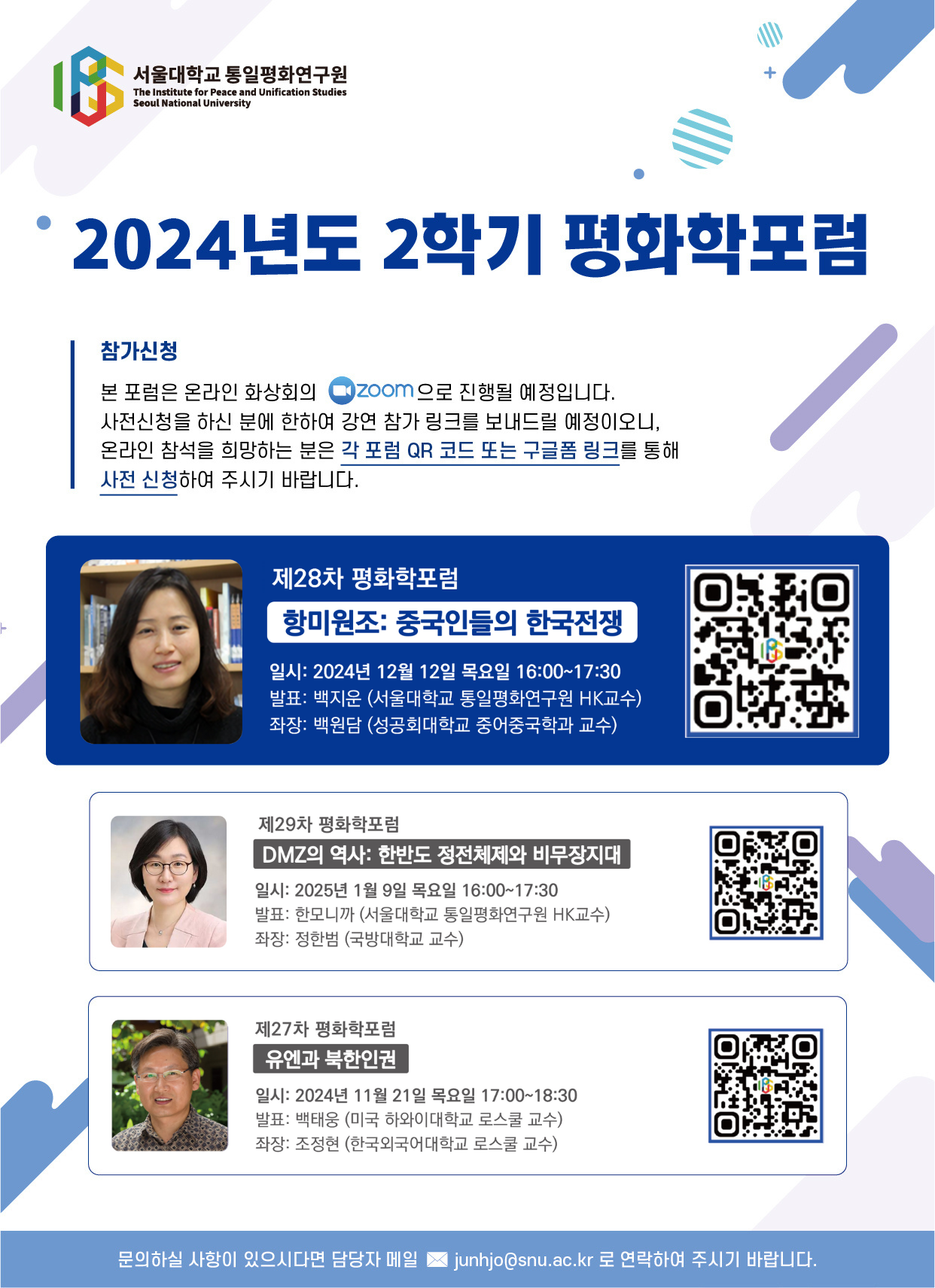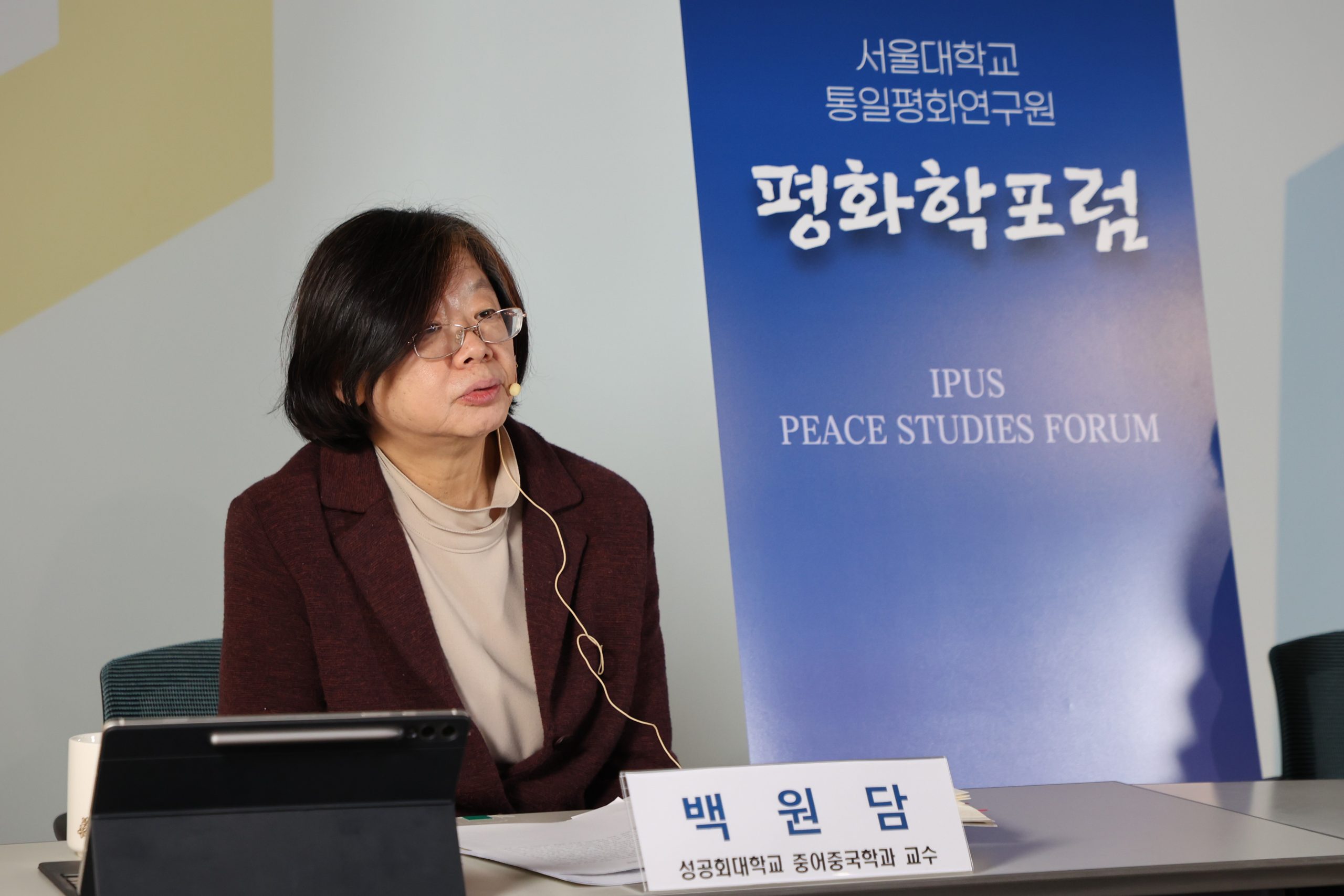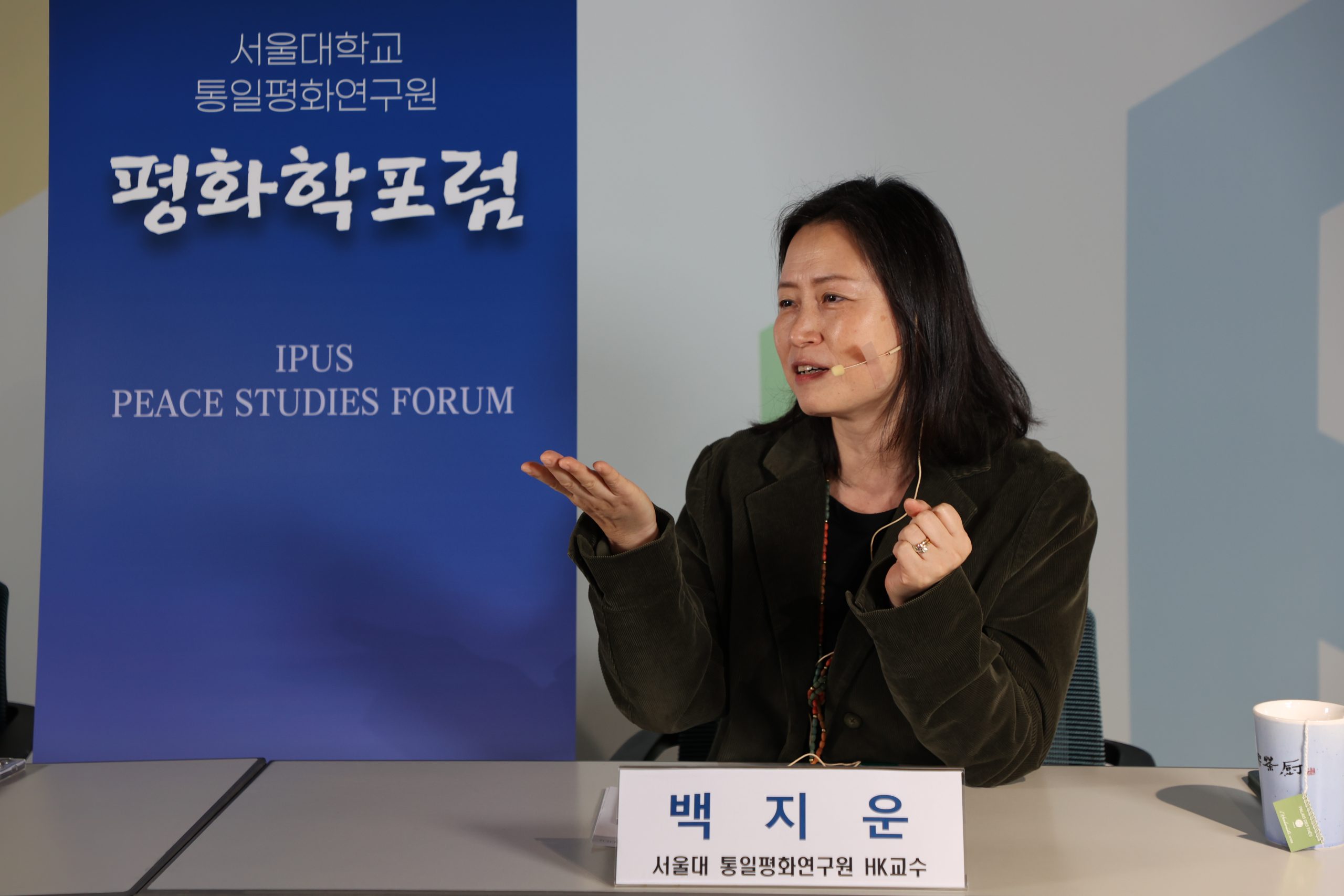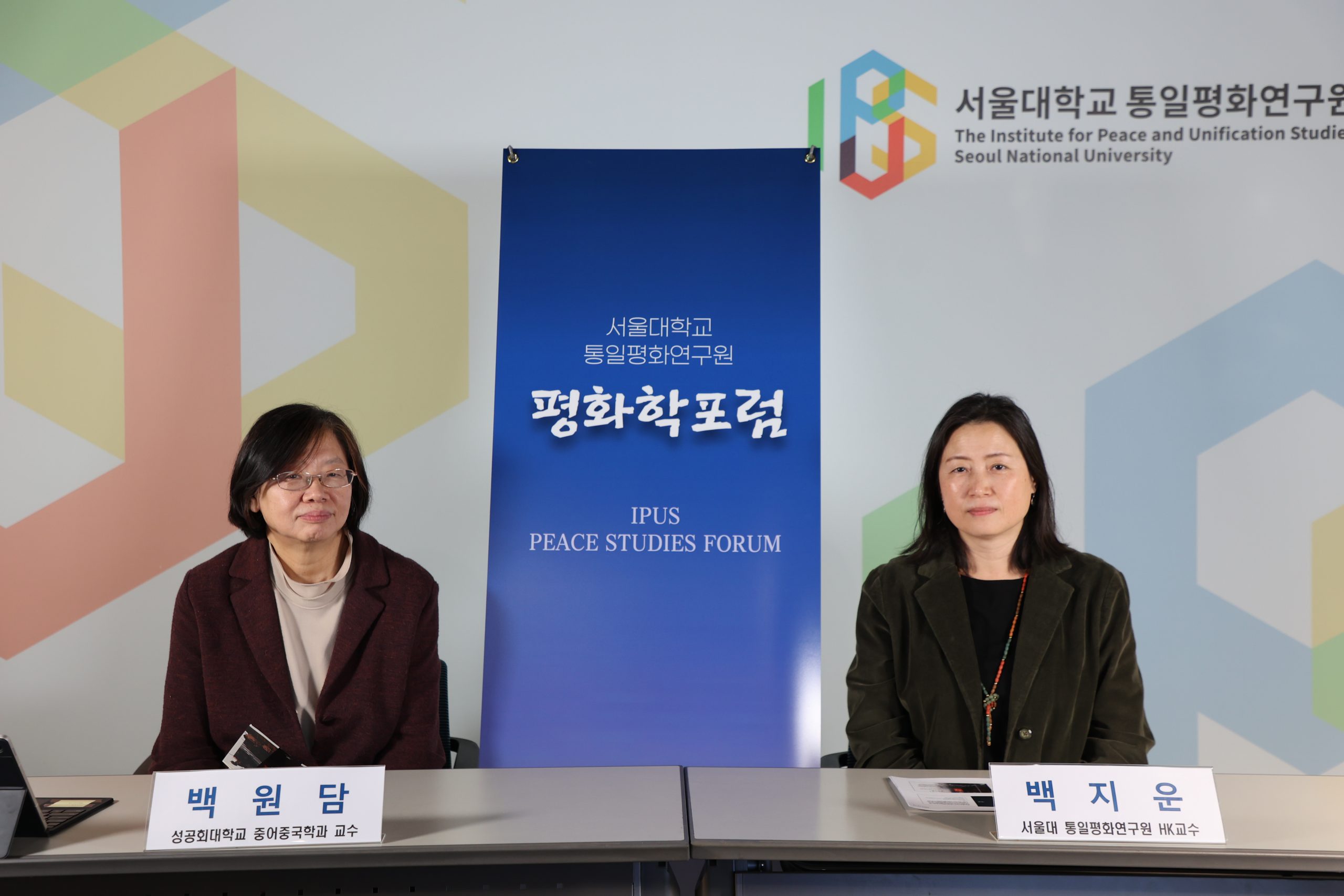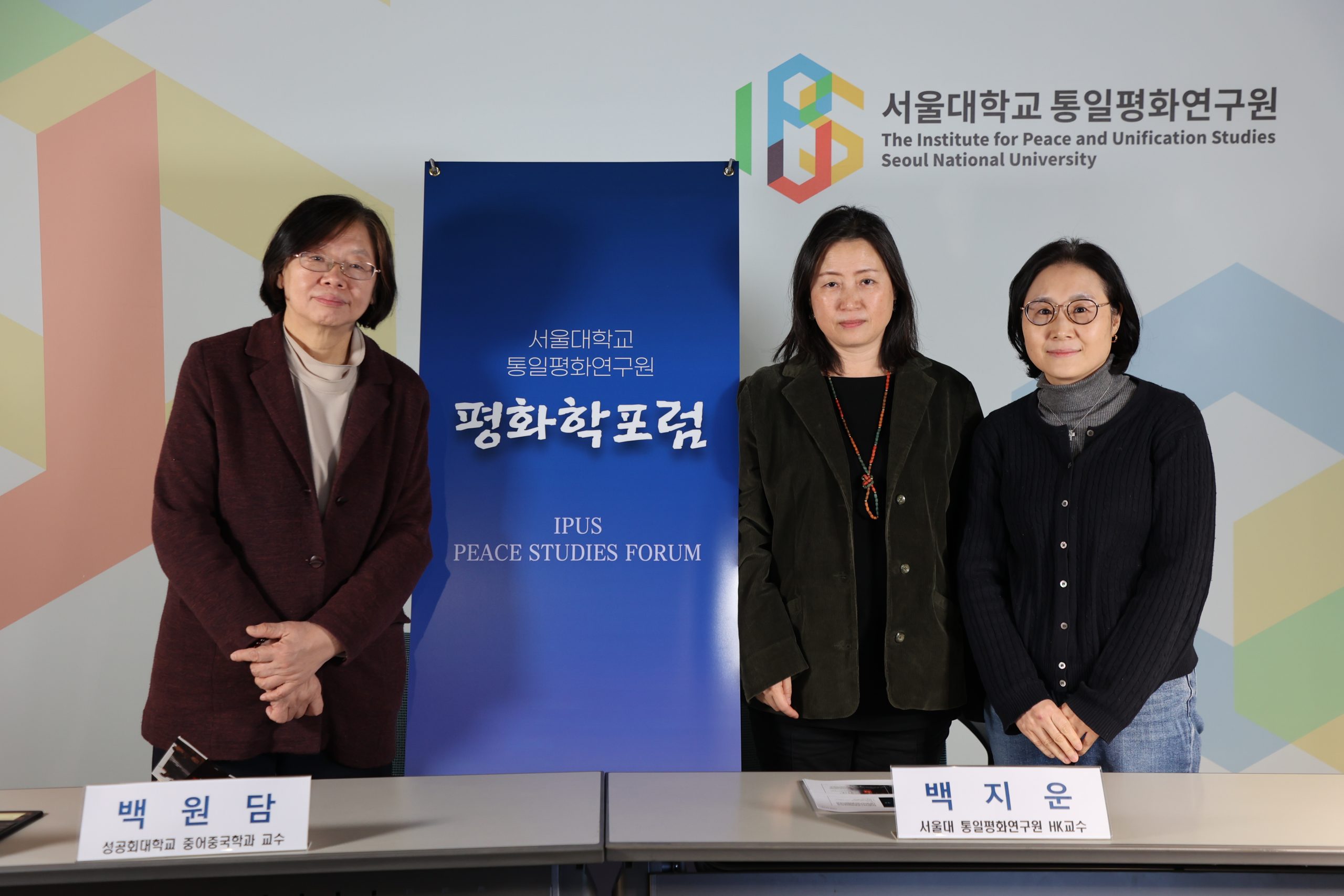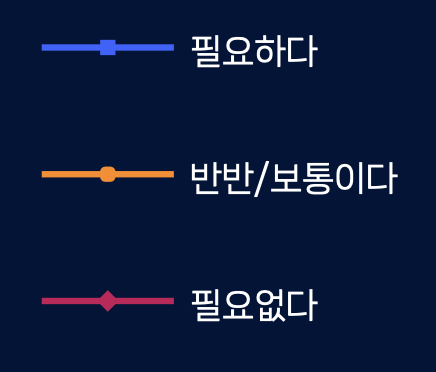[28th Peace Studies Forum] Resisting America and Aiding North Korea: The Korean War from the Chinese Perspective
- Date: Thursday, December 12, 2024, 16:00-17:30
- Venue: Online Video Conference(ZOOM)
- Presenter: Baik, Jiwoon (Humanities Korea Professor, the Institute for Peace and Unification Studies at Seoul National University)
- Chair: Paik, Won-Dam (Chair Professor, Sunkonghoe University)
- Topic: Resisting America and Aiding North Korea: The Korean War from the Chinese Perspective
The Institute for Peace and Unification Studies at Seoul National University (IPUS at SNU) hosted its 28th Peace Studies Forum on Thursday, December 12, 2024, under the theme ‘Resisting America and Aiding North Korea: The Korean War from the Chinese Perspective,’ with Humanities Korea Professor Baik, Jiwoon from the Institute for Peace and Unification Studies at Seoul National University. The forum was chaired by Chair Professor Paik, Won-Dam from Sungkonghoe University, who opened the forum with welcoming remarks.
In this forum, Professor Baik explored the recent return of ‘Resisting America and Aiding North Korea War’ (a Chinese perspective of the Korean War) to the public’s collective memory through Chinese films, dramas, and literary works. “China included the ‘Resisting America and Aiding North Korea War’ in the preamble of its constitution in 1954, but it was removed in the 1975 amendments,” Professor Baik explained, adding that “after the 1980s, references to the war were almost absent in textbooks, but in the 2000s, commemorative discourses by state leaders began to appear, and since Xi Jinping took office, the war has been actively commemorated.” “The most important means of propaganda in a socialist system is film,” Professor Baik said, adding, “It is noteworthy that while films about the Chinese Civil War were actively produced before the 1980s, the number of films regarding ‘Resisting America and Aiding North Korea War’ was very limited at that time.” “Then, in the 2010s, the ban on mentioning the war was quietly lifted, and with the emergence of drama and documentary as powerful means of public education, the number of materials related to Resisting America and Aiding Korea War increased,” said Professor Baik. “In particular, documentaries based on oral histories collected during this period are valuable because they played a crucial role in shaping the national narrative of the war,” Professor Baik said, adding that the 2020s marked the full return of this national narrative.
Professor Baik then introduced several films about the ‘Resisting America and Aiding North Korea War’, including Battle on Shangganling Mountain (1956), Heroic Sons and Daughters (1964), and The Battle At Lake Changjin II (2022), emphasizing that “the image of the hero has gradually changed from the revolutionary era to recent films.” First, Professor Baik explained, “Battle on Shangganling Mountain tells the story of a boy signaler named Huang Jiguang who sacrificed himself to destroy the enemy’s pillbox.” “At the time, an article in the People’s Daily referred to Huang Jiguang as a ‘Matrosov-style hero,’” she said. “The story is also featured in the subsequent movie, Heroic Sons and Daughters, which tells the story of the unsung hero Wang Cheng and his sister Wang Fang,” Professor Baik continued. “The film is based on the middle-grade novel Dan Yuan (1961) by the anarchist writer “Ba Jin,” a master of modern Chinese literature who did not participate in the Communist revolution,” Professor Baik explained. “To this day, the shadow of this novel is still very strongly cast on films and dramas about the ‘Resisting America and Aiding North Korea War’.” Specifically, Professor Baik explained, “The novel explores the Chinese Communist Party’s internal slogan of ‘Protecting the Home and Defending the Country(保家衛國)’, and asks the question, ‘How does an ordinary and insignificant young soldier turn into a superhuman who is as big as a mountain?’” “In the film, the protagonist is Wang Cheng instead of Liu Zhengqing, the hidden protagonist in the original novel,” Professor Baik said, explaining that this was done to “replace the self-deprecating image of the hero in the novel with a positive and optimistic image of a revolutionary hero.” Professor Baik also introduced a film called The Battle At Lake Changjin II, which was released in 2022. “As we have seen, the hero of the revolutionary era portrayed a nameless soldier as a hero and tried to draw an introspective narrative about ‘how a communist new man is made,’” she said. “However, by portraying the hero as a ‘warrior hero,’ the film seeks to erase the remnants of impure emotions such as lamentation, criticism, and regret that float between the lines of the public narrative,” Professor Baik explained, “and in doing so, China seeks to replace the public narrative of the ‘Resisting America and Aiding North Korea War’ with a ‘victorious war’ and prepare for the ‘new era’ of Xi Jinping.”
Finally, Professor Baik noted a unique plot twist in The Sacrifice, which was released in 2020. “The plot moves from the far view to the near view to the micro view, a technique inspired by Christopher Nolan’s Dunkirk,” explains Professor Baik, “representing the vivid microscopic history that is revealed when a microscope is put on the ‘sublime sacrifice’ seen from the far view.” “In other words, it vividly demonstrates that great moments in history are a collection of many small elements that are not simply reduced to the public narrative of ‘heroic sacrifice,’” said Professor Baik. “It is noteworthy that the film shows the viewpoint of small characters, such as private emotions and contingencies, and creates small cracks in the existing heroic narrative.” Professor Baik concluded by saying, “Even though the film did not go as far as an anti-war film due to the limitations of Chinese cinema, it shows the possibility of ‘creating an anti-war narrative’ under the realistic conditions of the Xi Jinping era, where the ‘Resisting America and Aiding North Korea War’ is being used to emphasize a strong patriotic narrative.”

